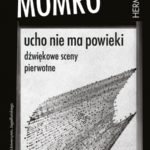Anna Wolny, Nem polonesa, nem judia
Przegląd
- Typ: Książka naukowa
- Marka: Wydawnictwo UJ

Anna Wolny
Nem polonesa, nem judia
A polaca na literatura brasileira do século XX
ISBN: 978-83-233-4895-5
Format: 15,8×23,5 cm
Rok wydania: 2020
Data premiery: 19.10.2020
Graças à sua perspetiva temática e metodológica inconvencional, como à argumentação e às conclusões baseadas na exploração de várias fontes e contextos, o livro de Anna Wolny constitui um valioso contributo tanto para os estudos da literatura e cultura brasileira na Polónia, como para os estudos feministas. Introduz assim um novo e mais vasto olhar para os estudos da emigração, plurietnicidade, e principalmente os mecanismos de discriminação e estereótipo em relação às categorias de sexo e raça, particularmente dentro do espaço cultural específico que pesquisa.
Da resenha do Prof. Henryk Siewierski, Universidade de Brasília
A polaca é uma criatura que representa não só as misérias do imigrante, como as da mulher, duplamente subjugada por poderes discursivos e sociais que a constituem. E, tal como a mulata, que conjuga em si vários elementos discursivos, perturbando a ordem social a polaca é a própria síntese do elemento feminino em transgressão. O elemento que, ao tentar afirmar-se como tal, corre o perigo
de se deixar enclausurar num estereótipo opressivo e negativo.
Trecho do livro
Anna Wolny é professora do Departamento de Português e Estudos de Tradução da Universidade Jaguelónica de Cracóvia (Polónia), tendo colaborado também com a Universidade de Varsóvia. Os seus interesses científicos abrangem o campo das literaturas em português, com um enfoque especial para a temática identitária dentro dos estudos culturais. Este livro baseia-se na sua tese de doutoramento, defendida em 2016.
The aim of this book is to show the possible meanings that the word polaca has inside the Brazilian norm of Portuguese, as well as to analyze their representations and recreations through the Brazilian literature of the 20th century, based on the example of selected novels.
The central hypothesis is the overlap of two parallel aspects of European migration process to Brazil between the 19th and the 20th century: first of them being the appearance of Jewish prostitutes in large urban centers (as a result of an organized criminal activity) and as for the second, the affluence of immigrants from the Central Europe. As an effect, the previously neutral designation of nationality gains a new meaning: polaca becomes synonymous with prostitute. By an essentialist overwriting of universal characteristics to the polaca, the limits between the Jewish prostitute and the Polish immigrant become blurred and they are subsequently burdened with new additional meanings.
The book analyzes various aspects of a variety of novels (written by Hilário Tácito, Maurício Pernidji, Esther Largmann, Moacyr Scliar and Dalton Trevisan), such as the choice of the narrator, his relation with the projected reader, the dialogical value, the oppositions between the text and the speech, hybridity and the choice of the techniques of portraying the body image. Those let us show that, in spite of its double meaning, the polaca stereotype is created by the same mechanism of transferring the corporal elements to the intellectual sphere and backwards.
What brings together both figures of polaca and can possibly explain the durability of the resulting stereotype, is their common term in the form of the mullato woman. Constructed in the literature with the same tools, triply excluded because of her race, gender and social inadequacy, the mulatto woman allows us to understand on which ideological basis the polaca, stigmatized as a prostitute merged with the polaquinha, known in Southern Brazil. Both are products of an essentialist attempt to isolate their specificity, while, in our opinion, they continue revealing the mechanism of the essentialist stereotype’s formation.
This analysis proves a cultural transition from the moment of the stereotype’s germination, through its repetitive recreations, to the creation of texts which, while commenting on those processes, enter in a critical dialogue with the tradition and, at the light of modern cultural theory, enable its understanding, and subsequently its deconstruction.
www.wuj.pl






